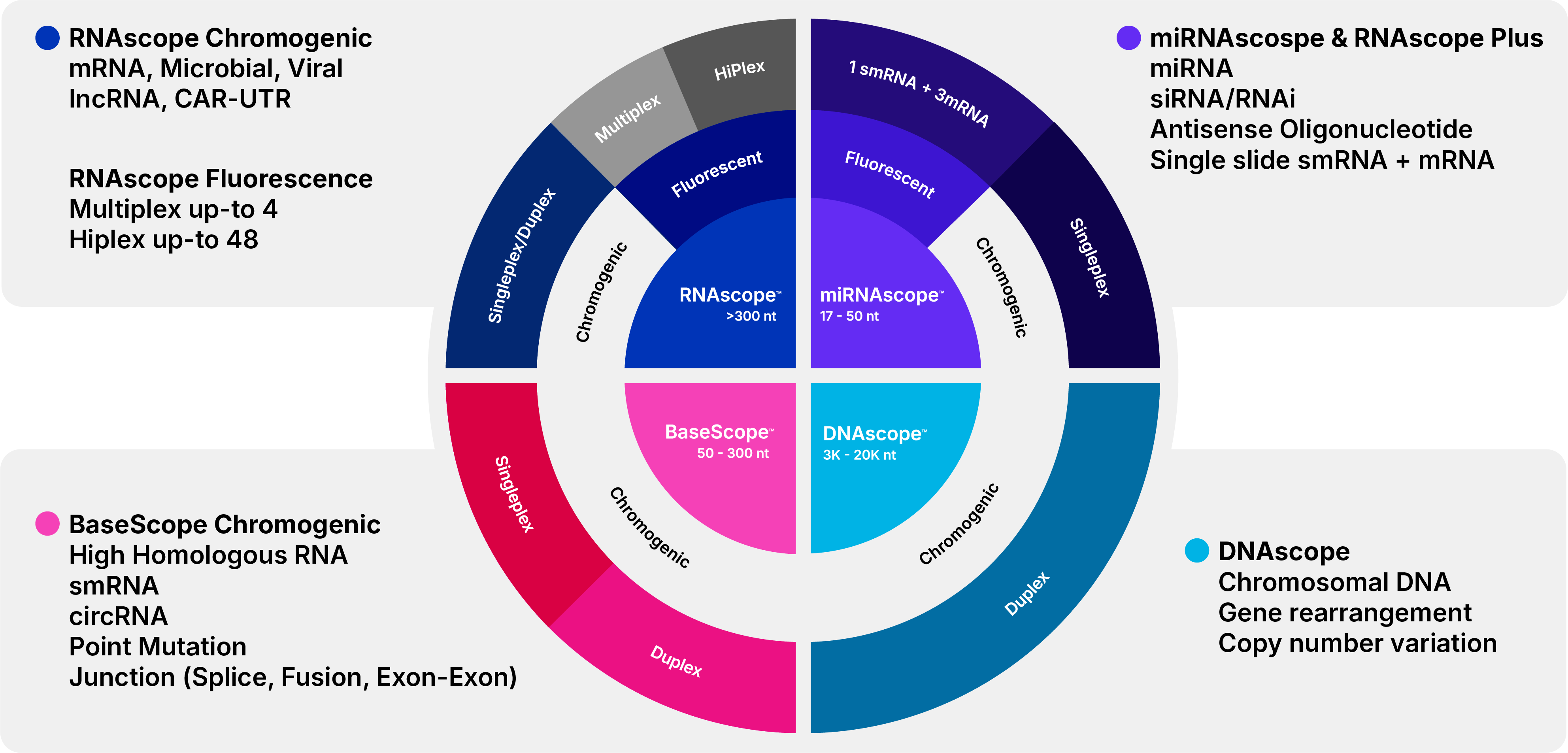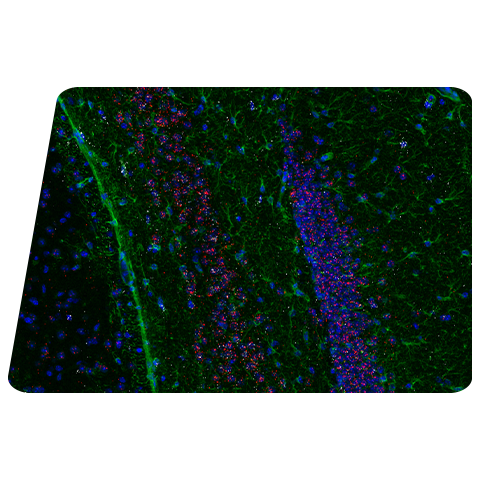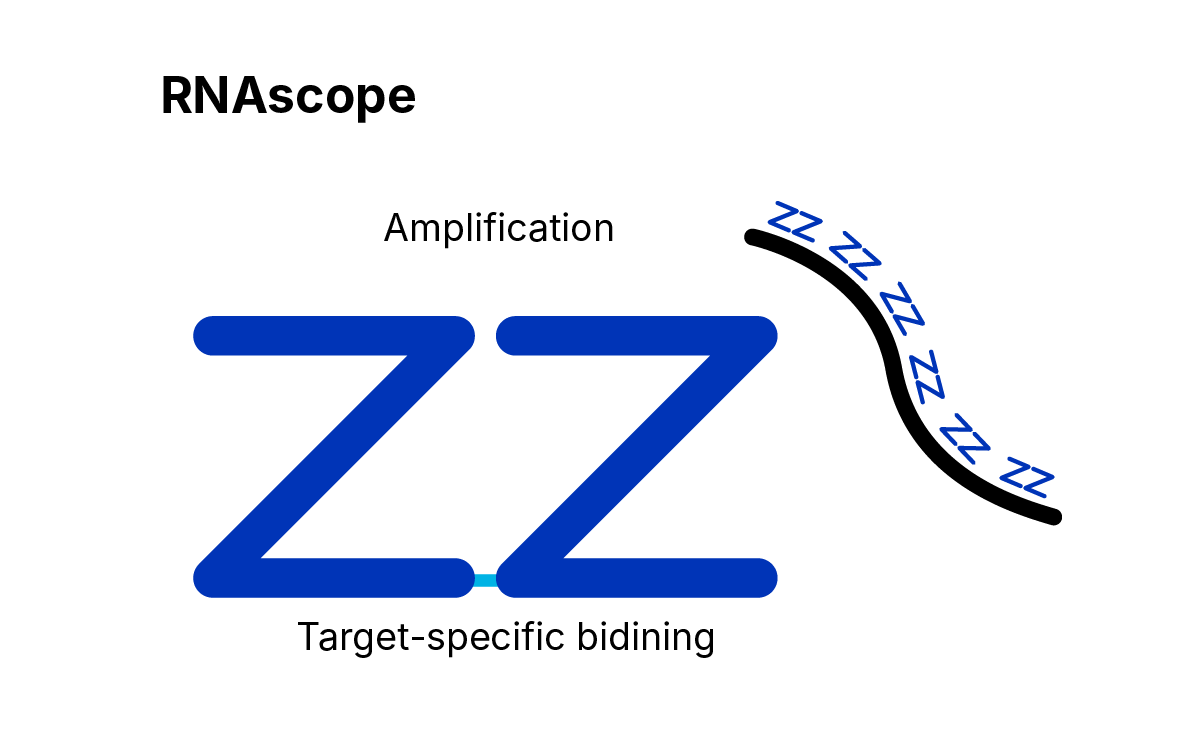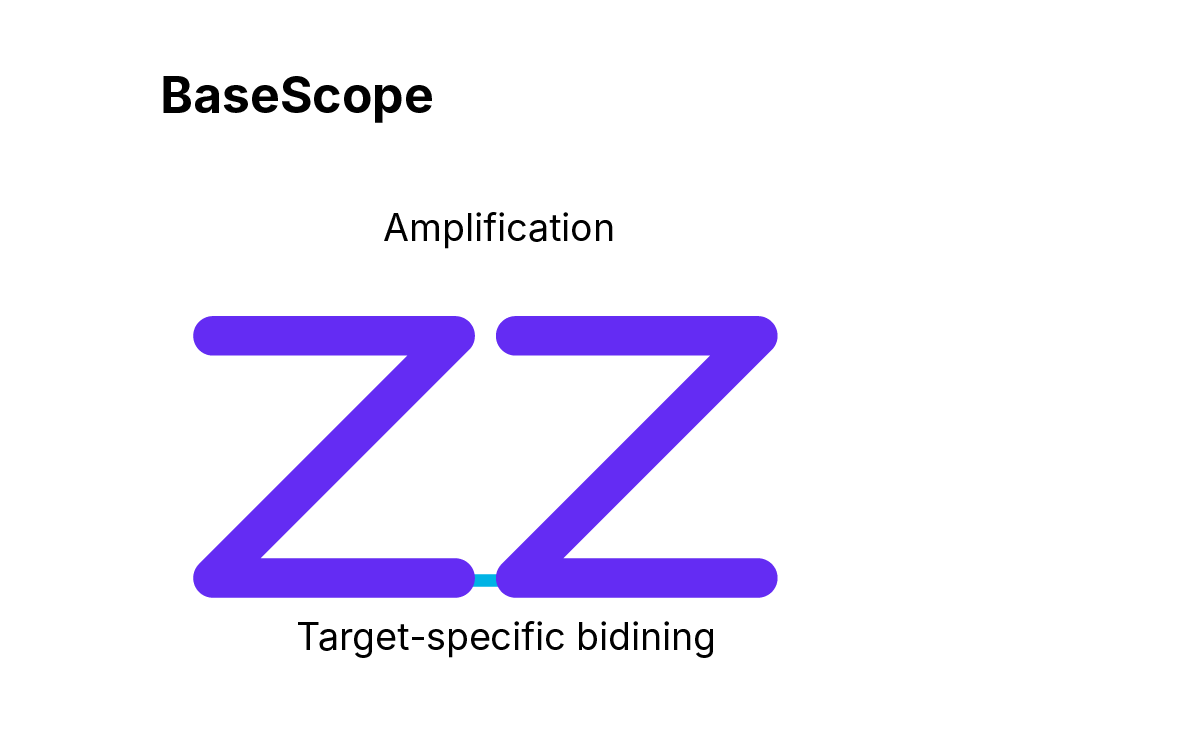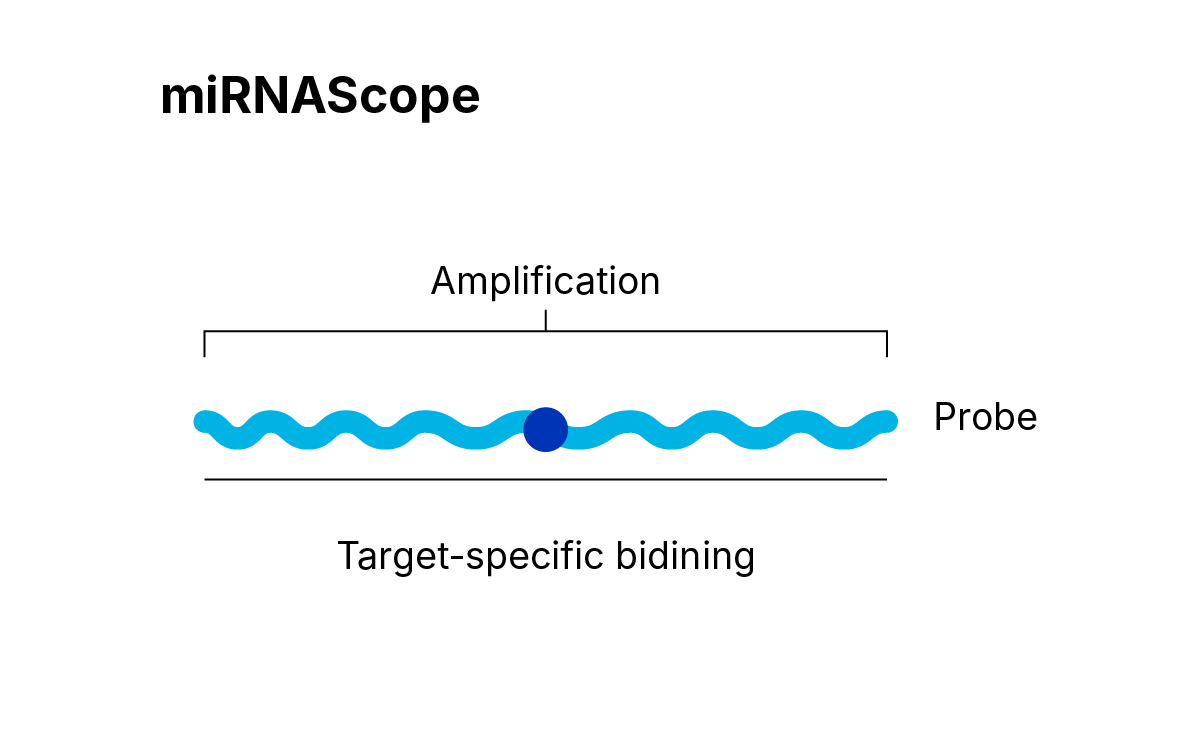Technical Highlights
The RNAscope™, BaseScope™, and miRNAscope™ assays are based on the proprietary RNAscope Technology, enabling RNA target expression analysis within intact cells and tissues with high sensitivity and specificity.
Sensitivity
Detection of each single RNA molecule requires as low as three double Z probes to bind to target RNA. The 20 double Z probes provide robustness again partial target RNA accessibility. | Specificity
The double Z probe design prevents background noise. Single Z probes binding to nonspecific sites will not produce a binding site for the pre-amplifier, thus preventing amplification of the nonspecific signals contributing to specificity. | Single Molecule Detection
Our proprietary probe design and signal amplification increases sensitivity such that a single molecules of RNA can be visualized as a punctate signal dot under a standard microscope. | Degraded Sample Compatible
The double Z probe design, with its relatively short target region (40-50 bases of the lower region of the double Z) allow for successful hybridization of the partially degraded RNA. |
Custom Probe Highlights
Don't see your target in the catalog? Learn more about RNAscope Custom Probes
RNAscope Assays
The innovative RNAscope Assay, with in situ hybridization technology to detect mRNA and ncRNA targets of >300bp, was launched in 2011 and marks the foundation of our product portfolio. The proprietary probe design requires an average of 20 Z pairs per target, however a minimum hybridization of 7 Z pairs can be used to obtain a signal with single cell resolution. With over 12,000 publications in peer-reviewed journals, across multiple disciplines, the RNAscope Assay represents a revolutionary advance in in situ target RNA detection.
BaseScope Assays
The BaseScope Assay was added to the RNAscope Technology product portfolio in early 2016. Using the same innovative technology and proprietary probe design as used in the RNAscope Assay, the BaseScope Assay is further refined to detect as few as 1-3 Z pairs. This powerful in situ hybridization technology enables the specific detection of exon junctions, short target/splice variants highly homologous sequences and point mutations, with single cell detection sensitivity in a broad range of tissues, samples and species.
miRNAscope Assays
The miRNAscope Assay uses an advanced innovative in situ hybridization technology and proprietary probe design to enable highly specific and sensitive detection of small RNAs including antisense oligonucleotides (ASOs), microRNAs (miRNAs), and small interfering RNAs (siRNAs), with single cell resolution providing spatial and morphological context.
